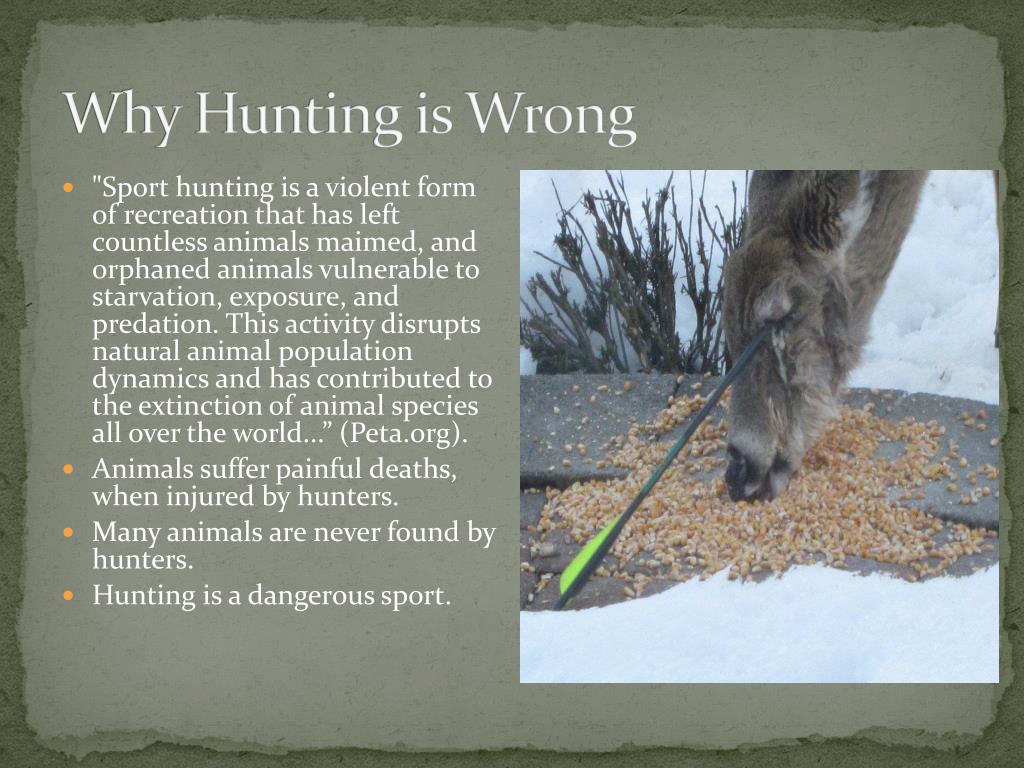The dichotomy between hunters and animal rights advocates often elicits fervent debates, raising the question: Are hunters more likely to display signs of animal cruelty? This inquiry delves into various sociocultural, psychological, and environmental factors that influence hunting behaviors and the perceptions surrounding them. While an exploration of animal cruelty can evoke strong emotions, a thorough examination offers a more nuanced understanding of the phenomenon.
To begin, it is essential to delineate “animal cruelty” within the context of hunting. Animal cruelty generally refers to the infliction of suffering or harm upon animals, whether through neglect, exploitation, or violent acts. In the realm of hunting, cruelty may manifest in multiple forms, such as excessive suffering experienced by wounded animals, disregard for hunting regulations, or inappropriate handling of game. Conversely, hunters often frame their activities within a broader ecological context, citing necessity, conservation efforts, and sustenance as justifications for their actions.
A common observation suggests that many hunters exhibit a fascination with the act itself—hunting becomes less about the sustenance or sport and more about the conquest over an animal. This predilection toward domination can lead to a desensitized viewpoint, where the emotional connection to the animal diminishes. Observers note that this relentless pursuit may inadvertently normalize violence towards living beings. Furthermore, the socialization processes surrounding hunting may inadvertently contribute to a culture where animal suffering is trivialized, as hunters may downplay the implications of their actions.
From a psychological standpoint, there exists a concept known as the “interpersonal relationship with nature.” This relationship varies significantly among hunters and non-hunters, with the latter group generally cherishing wildlife in a more sentimental manner. Hunters, however, frequently develop an ambivalent relationship with the animals they pursue. At times, they exhibit affection and respect for nature, only to pivot toward an almost ruthless pursuit of their quarry. This duality raises questions about their true understanding of the ethical implications surrounding the animal world.
Environmental contexts also shape the perceptions of hunting and its associated cruelty. In many rural communities, hunting is ingrained in local culture, intertwined with traditions passed down through generations. Here, the hunt may serve not only as a means of subsistence but also as a rite of passage, fostering community bonds and a sense of identity. However, this cultural framework can concurrently obscure instances of cruelty, as normative behaviors become enmeshed in local customs. Community endorsement of hunting practices shifts the locus of accountability, creating an environment where animal suffering may be overlooked.
Moreover, the advent of modern hunting technology further complicates this issue. With advancements in firearms, clothing, and tracking devices, the ability to kill an animal swiftly may contribute to a detachment from the gravity of the act. The quick and painless death of the animal is often touted as a sign of skill and efficiency, yet this pipeline to death can diminish the inherent respect owed to the animal as a living being. This detachment raises ethical concerns, as emotional detachment can occasionally morph into a pathway for cruelty.
Furthermore, the commercialization of hunting has resulted in the emergence of trophy hunting—a practice deemed particularly cruel by animal rights advocates. Trophy hunters seek not sustenance, but rather recognition; this egocentric pursuit leans towards a commodification of wildlife. The celebration of killing magnificent creatures for mere trophies exacerbates the ethical conflict surrounding hunting. Consequently, this illustrates how motivations rooted in ego can contribute to behaviors deemed cruel, especially when viewed through the lens of animal welfare.
Common psychological traits observed in some hunters may corroborate the notion that a minority might exhibit a propensity towards cruelty. Research has suggested that certain individuals engaged in high-stakes, emotionless environments might develop alexithymia—an inability to identify or express emotions. The thrilling experience of the hunt—a cocktail of adrenaline and dominance—may elicit responses comparable to those seen in the realm of aggressive behaviors. However, this is not to suggest that all hunters possess these traits; they do highlight the complex psychological factors that can bear consequences on behavior.
Yet, it is vital to acknowledge that many hunters possess a fervent respect for the environments they inhabit and the animals within them. Ethical hunters often adhere to strict codes of conduct, prioritizing the principles of fair chase and minimizing suffering. This contrast raises important questions about the broader implications of hunting practices as a whole, rather than dissecting the motivations of individual hunters within the community.
In conclusion, the question of whether hunters are more likely to manifest signs of animal cruelty is multifaceted and layered. It encompasses the interplay of psychological motivations, cultural contexts, technological influences, and ethical considerations. As we navigate this complex territory, it becomes crucial to discern that the existence of animal cruelty persists irrespective of hunting itself. A careful exploration of these variables fosters deeper understanding and dialogues about hunting, animal rights, and the imperative need for ethical stewardship of wildlife.
Ultimately, fostering empathy towards all living beings remains paramount in addressing animal cruelty comprehensively. Development of educational and support programs around sustainable hunting practices, alongside stringent regulations, may pave the way toward reconciling the hunting community and advocates for animal welfare. Engaging in thoughtful discourse about the moral implications of hunting serves not only to challenge existing narratives but also to cultivate a more compassionate world for all inhabitants of our planet.








